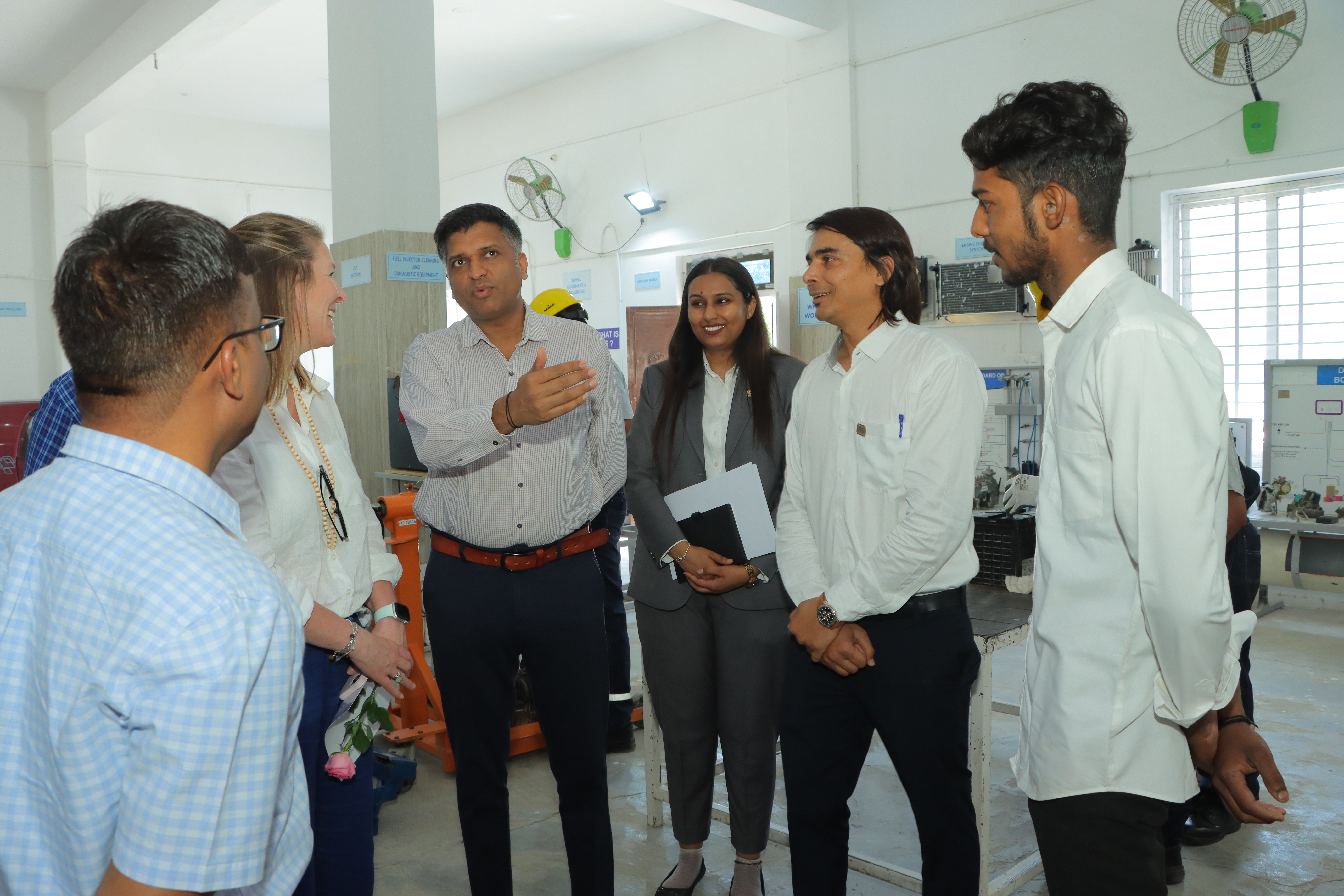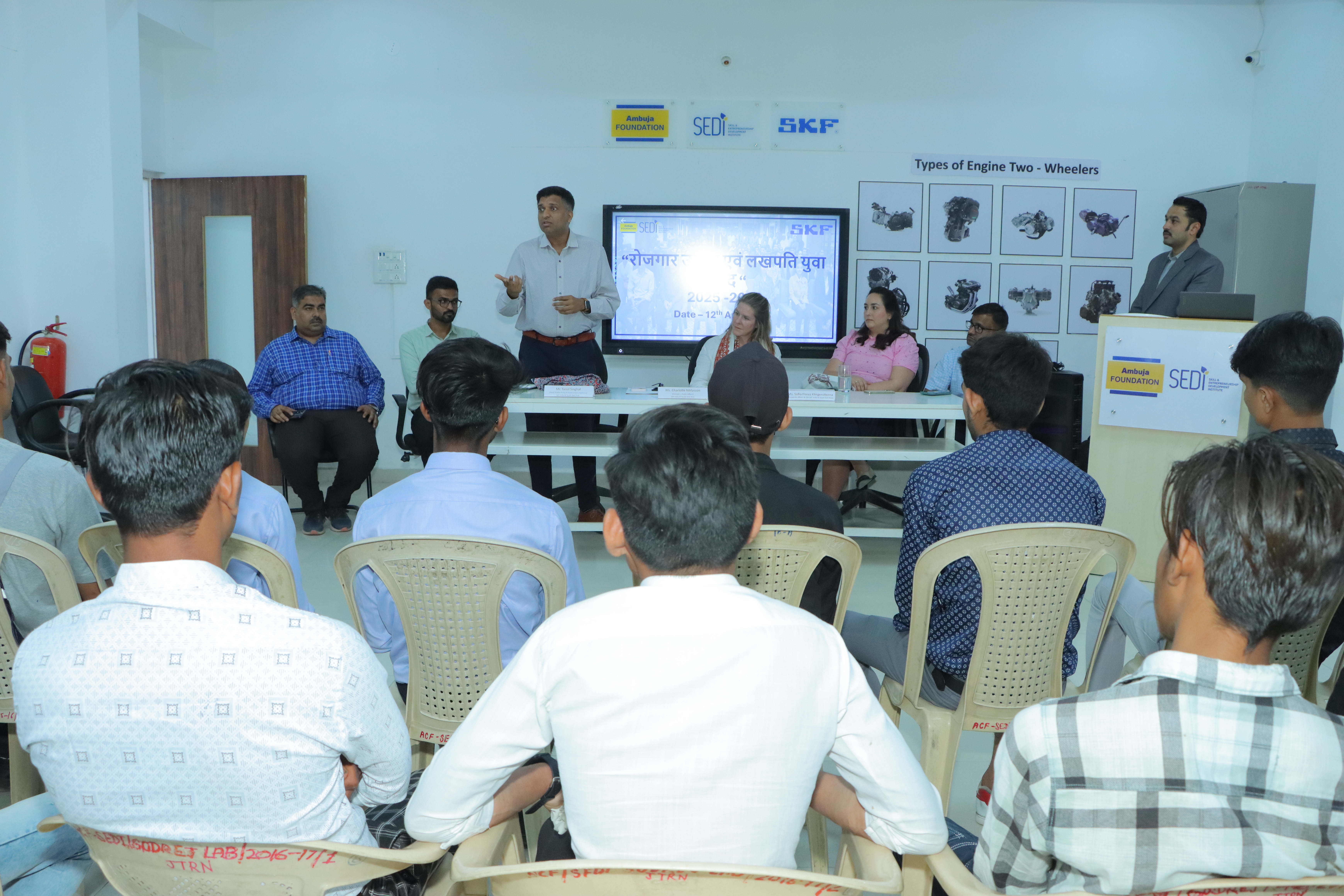For SKF India, Corporate Social Responsibility is no longer about ticking the boxes. It’s about transformation of communities, of ecosystems, and of the way CSR itself is approached.
In recent years, SKF has consciously moved away from individual-focused interventions to community-wide development. This shift in thinking has taken SKF and Ambuja Foundation to arid regions, and resource-scarce communities in western Rajasthan, where the need is acute and the impact can be transformational. Through rejuvenation of the traditional water bodies and safe drinking water securities through rooftop rainwater harvesting systems (locally known as Tanka), the partnership is not only improving water access but also triggering ripple effects around better health, more time for women, improved school attendance for girls, and revived local biodiversity. Under the initiative 18 water bodies revived and 161 Tankas has been promoted in these villages in last 2 years.
“We’re trying to strike a balance,” says Mr. Tanul Singhal,Head-Government Advisory & Policy Advocacy, SKF India Ltd. “We’re reaching deep into communities to find and skill local talent but at the same time we’re working to ensure their basic needs are in place so they don’t migrate. Urban stress is already high—CSR must play a role in mitigating that.” Under the YES Centre in Jaitaran total 538 local youth successfully nurtured and now leading quality of life as well as supporting their families too.
A New Lens on CSR: From Compliance to Co-ownership
There was a time when CSR was about statutory obligations—a mandatory 2% of profits allocated to social projects. But Mr. Singhal’s perspective has evolved.
“I used to think CSR was just a compliance requirement,” he admits. “But now I see it differently. When the government first started pushing CSR, it lacked the funds and the capacity for deep outreach. Private sector partnerships were needed to jumpstart initiatives. But these were never meant to be permanent solutions. The goal is to catalyse, shape and stabilise efforts, then pass them on to the community and to the government.”
Whether it’s education, health, water, or livelihoods, he argues that sustainability must be built in from the start. That means involving local governments, building community ownership, and ensuring that CSR projects don’t just deliver impact, but endure.
“Every rupee should be spent with the intent of building long-term value. That means everyone corporates, government departments, and communities must be accountable. This is not charity. This is shared investment. When communities contribute, even in small ways, they respect and protect the outcomes.”
Over the years, SKF has collaborated with several NGOs, but in recent times, there has been a conscious effort to consolidate partnerships focusing on those that deliver high impact, agility, and shared purpose. “It’s a volume game,” says Mr. Singhal. “For quicker, more meaningful outcomes, our partners need to be able to scale. That’s where Ambuja Foundation stands out. Not only do they bring deep grassroots expertise, but we are aligned in thinking, approach, and long-term vision. This synergy allows us to move faster, go deeper, and achieve more sustainable outcomes across geographies that need it most.”
Skilling for Rural Futures
At the heart of the SKF, Ambuja Foundation partnership is a shared commitment to building inclusive, future-ready rural talent pipelines. Many young people in rural areas aspire to work close to home, near family, within their communities, and in familiar environments. To support this, the partnership has gone beyond conventional skill training to build localised placement ecosystems, bringing in regional employers, onboarding placement and technical partners, and even collaborating with the government to repurpose underused infrastructure as skill centres.
“This isn’t just about job-readiness,” says Mr. Singhal. “It’s about ecosystem readiness.” Recognising that youth including those with special needs or from marginalised backgrounds, often face limited opportunities, SKF is activating its entire value chain - dealers, distributors, and service networks - to create meaningful local employment pathways. Academia has also stepped in to certify training modules, ensuring quality and credibility.
With Ambuja Foundation’s deep grassroots presence and skilling expertise, and SKF’s industrial knowledge and networks, the program is uniquely positioned to address real-world gaps - empowering rural youth to stay, work, and thrive in their own communities, while also reducing the pressures of urban migration.
Government, Community, and Corporate: A Three-Way Partnership
From water to skill training, SKF’s CSR investment strategy now centres around alignment with government systems and policies. The ambition isn’t to replace the state, but to supplement and strengthen it—at least until the state is ready to fully take the reins.
“We’ve seen what happens when government isn’t part of the process from the start—assets get built but not maintained. That’s why we’re now focused on early government involvement, community mobilisation, and strong accountability frameworks.”
This aligns with Ambuja Foundation’s approach – ensuring community ownership from the get go, and engaging Government along the way.
Looking Ahead: Purpose over Program
With a corporate restructuring underway and plans to realign SKF’s CSR policy, the focus is now shifting toward integrated village development—a model that looks at health, education, water, and livelihood as a continuum, not separate silos.
“It’s not about the program—it’s about the purpose,” he says. “If you're only educating children without skilling them for jobs or addressing the water crisis in their village, they’ll go back to the same challenges. But if you invest end-to-end, you create model villages. You might even start seeing reverse migration back to rural areas.”
His message to other corporates? Co-create. Collaborate. Don’t do it alone. Shared vision and shared investments lead to stronger, more scalable outcomes.
"At the end of the day, the role of corporates is to catalyse - not to carry the weight forever. But if done right, what we start today can continue to grow long after we’ve stepped back."




